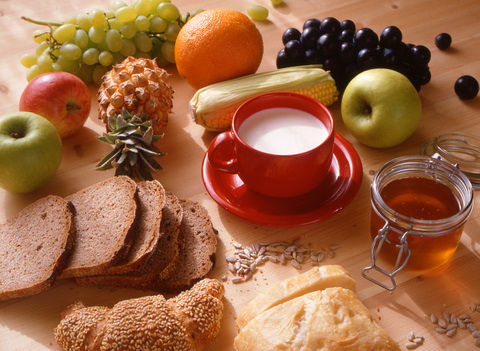March 10th, 2015

At Northwest Smile Design, we see a lot of patients who are concerned about their bad breath, also known as halitosis. So today we thought we would educate our patients about what you can do to keep your pearly whites clean and your breath minty fresh!
Naturally, good oral hygiene on your part is the first step. With proper brushing and flossing you can keep halitosis in check. Even though you may have done an excellent job of brushing and flossing your teeth, if you fail to brush your tongue, you may still have bad breath. Bad breath is caused by odor-producing bacteria that grow in your mouth. Certain foods, medications, smoking, sinus issues, or even gum disease can cause bad breath.
Besides proper brushing and flossing, bad breath can be prevented if you:
Stop smoking/chewing tobacco-based products: Ask Dr. Kelly Peterson and our team for tips on kicking the habit.
Keep your mouth hydrated: Because a dry mouth typically leads to bad breath, drinking water or eating oranges or celery may help.
Visit our Marysville, WA office for regular dental checkups: By visiting Northwest Smile Design at least twice a year, you will keep bad breath at bay. Dr. Kelly Peterson will conduct an oral exam and will be able detect and treat periodontal disease, dry mouth, or other problems that may be the cause of bad mouth odor.
March 3rd, 2015

While you don’t have to wait to start eating right, March is the month the Academy of Nutrition and Dietetics asks everyone to pay special attention to what goes into our bodies. The Academy has designated the month of March for focusing the public’s awareness on what they eat.
What Not to Eat
The academy points out that the foods you eat have a direct effect on the health of your teeth and specifically on tooth decay. Bacteria rely on carbohydrates to thrive. That is why Dr. Kelly Peterson and our team at Northwest Smile Design tell our patients to cut back on both candy and sweets. They consist of simple sugars that feed the bacteria in your mouth and enhance tooth decay.
It’s the hidden sugars that will cost you, though. Get in the habit of reading labels on food and looking for products with added sugar. This includes ingredients that end with the suffix “ose.” When it comes to nutrition, these foods offer little value beyond satisfying that sweet tooth.
What You Should Eat
Turn to foods that not only taste good but are good for your teeth too. Dairy products, for example, provide the body with nutritional items that support tooth enamel. Foods high in protein feature phosphorus, a nutrient critical to oral health.
You can’t really go wrong by adding color to your diet, either. Fruits and vegetables make for a colorful plate and a healthy meal. Use some caution with acidic fruits like oranges or even tomatoes, because the acid can erode tooth enamel. It is better to include these foods in a meal instead of eating them by themselves.
Remember, good nutrition is something you should worry about all year long, not just when celebrating National Nutrition Month. March just serves as a fun reminder that eating right is a proactive step in managing your dental health.
We encourage you to give us a call at our Marysville, WA office to learn more!
February 24th, 2015

The average adult has 32 teeth, a combination of molars, canines, and incisors. By middle age, however, most adults are missing at least one tooth due to an injury, decay, or gum disease. Though many people choose to forgo tooth replacement, Dr. Kelly Peterson and our team at Northwest Smile Design will tell you that every tooth is important. Each plays a vital role in the structure of the mouth and in relationship to the remaining teeth. Leaving the space where a tooth once stood can have serious consequences. There are many reasons why severely decayed or missing teeth should be replaced as quickly as possible.
- Speech: A missing tooth can negatively affect the way you speak, depending on its location.
- Bite changes: The loss of one or more teeth can cause the redistribution of bite pressure onto other teeth. Over time, this can cause the teeth to shift and move into the space the tooth once held.
- Gum disease: Shifting teeth can make it easier for plaque to accumulate in hard-to-reach places. This can increase the risk of gum disease, which can lead to additional tooth loss.
- Bone loss: The teeth are place-holders in the jaw. When one falls out and is not replaced, the bone that once surrounded it begins to deteriorate and wear down.
- Aesthetics: A missing tooth leaves a visible gap between the teeth and can be a source of embarrassment and insecurity.
Advancements in modern dentistry have made it easy to replace missing teeth using natural-looking and functioning prosthetics. Dental implants are permanent solutions for replacing missing teeth with the use of special rods that are anchored in the jaw bone. These implants serve as artificial tooth roots that fuse with the jaw over time. When cared for properly, most dental implants can be fitted to last a lifetime.
To learn more about dental implants, or to schedule an appointment with Dr. Kelly Peterson, please give us a call at our convenient Marysville, WA office!
February 17th, 2015

Also known as onchophagia, the habit of nail biting is one of the so-called “nervous habits” that can be triggered by stress, excitement, or boredom. Approximately half of all kids between the ages of ten and 18 have been nail biters at one time or another. Experts say that about 30 percent of children and 15 percent of adults are nail biters, however most people stop chewing their nails by the time they turn 30.
Here are four dental and general reasons to stop biting your nails:
1. It’s unsanitary: Your nails harbor bacteria and germs, and are almost twice as dirty as fingers. What’s more, swallowing dirty nails can lead to stomach problems.
2. It wears down your teeth: Gnawing your nails can put added stress on your pearly whites, which can lead to crooked teeth.
3. It can delay your orthodontic treatment: For those of our patients wearing braces, nail biting puts additional pressure on teeth and weakens roots.
4. It can cost you, literally: It has been estimated that up to $4,000 in extra dental bills can build up over a lifetime.
Dr. Kelly Peterson and our team recommend the following to kick your nail biting habit:
- Keep your nails trimmed short; you’ll have less of a nail to bite.
- Coat your nails with a bitter-tasting nail polish.
- Ask us about obtaining a mouthguard, which can help prevent nail biting.
- Put a rubber band around your wrist and snap it whenever you get the urge to gnaw on your nails.
- Think about when and why you chew your nails. Whether you are nervous or just bored, understanding the triggers can help you find a solution and stop the habit.
- If you can’t stop, behavioral therapy may be an effective option to stop nail biting. Ask Dr. Kelly Peterson and our team for a recommendation.










 Website Powered by Sesame 24-7™
Website Powered by Sesame 24-7™